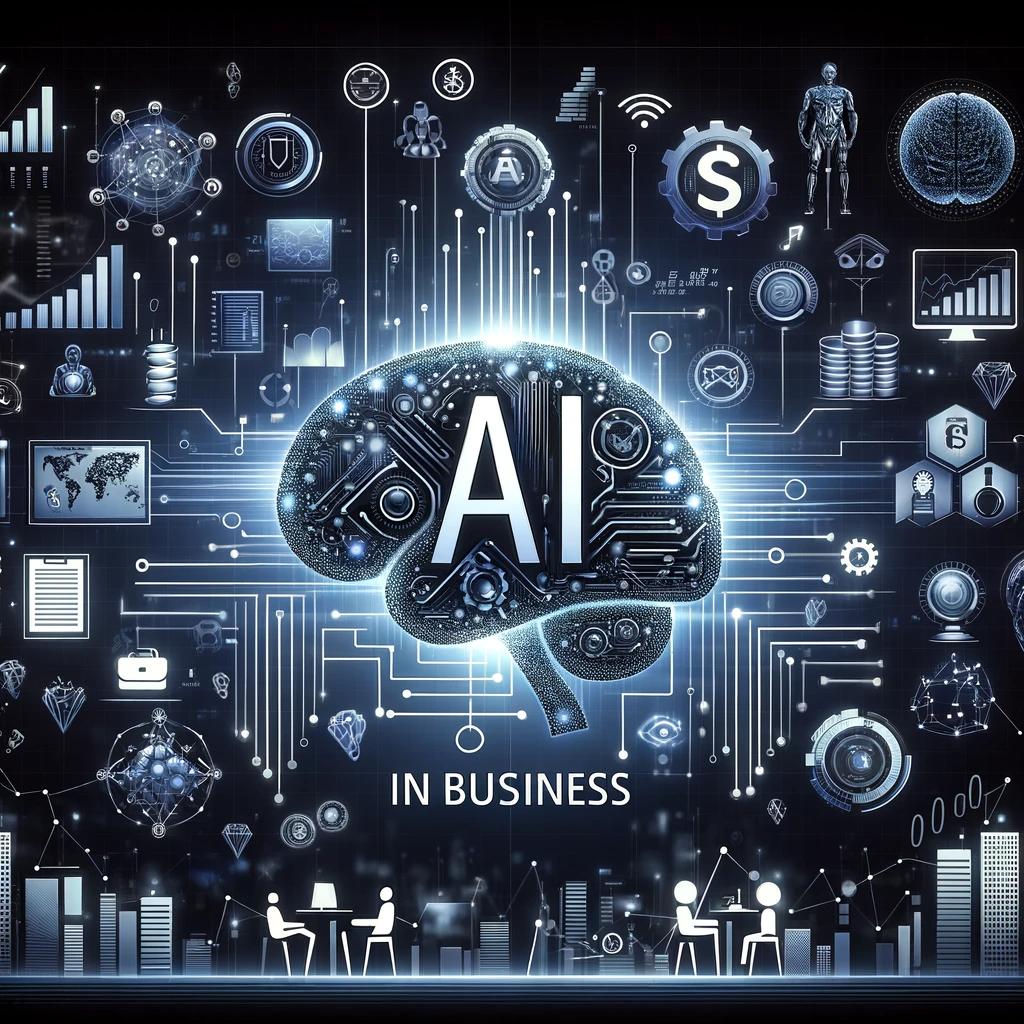
Introduction to AI in Business
Companies across the globe are turning to AI to navigate the complexities of modern markets, driven by the technology's capacity to process vast quantities of data, uncover patterns, and make informed predictions. The adoption of AI in business is not just a trend but a transformative force, with 63% of businesses reporting revenue increases attributable to AI enhancements in their products and services [1].
Businesses harness AI for its unparalleled ability to optimize decision-making, improve customer experiences, and streamline operations. AI's analytical prowess is evident in its ability to boost sales conversions by up to 50% through personalized recommendations and targeted marketing [1]. Efficiency gains from AI are equally impressive, with companies reporting up to a 40% reduction in costs due to the automation of routine tasks and improved operational efficiencies [2].
In this article, we discuss real-life examples of how two major companies leveraged AI in their business operations to enhance employee productivity, customer loyalty, and operational efficiency.
Success Stories
Nike
Nike, a leading manufacturer of sportswear and equipment, has revolutionized the way customers find the perfect fit for shoes with its innovative AI-driven tool, NikeFit. Encompassing over 38% of the athletic apparel market globally, Nike understands the importance of customer satisfaction [3].
In response to ongoing customer complaints about the difficulty of selecting the right shoe size online, Nike implemented NikeFit as a feature within its Nike app [4]. Through data analysis, Nike found that three out of five customers were initiating returns specifically for shoes, resulting in additional costs for Nike and a decrease in its net profit margins.
Nike Fit tool allows users to simply scan their feet using their smartphone camera, eliminating and reducing the need for costly return procedures. What sets NikeFit apart is its ability to account for the nuances of different shoe models and the distinct fit requirements for running versus everyday shoes. The app guides users to accurately align their feet on the screen, capturing 13 visual data points to determine the precise shoe size. This breakthrough technology was made possible through Nike's acquisition of Invertex Ltd., a specialist in augmented reality (AR) [5].

By creating a 3D model of the foot, NikeFit considers length, width, and height measurements, ensuring an optimal fit. Not only does this enhance customer satisfaction, but it also boosts profit margins for the company by decreasing the number of returns. Additionally, as more users utilize the AI-backed technology, NikeFit becomes increasingly precise, providing even better shoe size recommendations over time.
Currently, Nike has plans to expand the functionality of NikeFit beyond footwear. The company aims to improve its 3D scanning technology to capture models of the entire human body, allowing customers to accurately select sizes not just for shoes, but also for clothing.
NikeFit represents a true success story in the world of sportswear, showcasing how to use AI in business in a creative manner to both resolve the issue of increasing operational expenditures associated with returns and strengthen customer loyalty by addressing complaints.
Walmart
Walmart, an American grocery retailer and the largest private employer in the world is a prime example of increased operational efficiency through leveraging AI in business. Walmart has successfully implemented AI for inventory management, specifically for tracking items that require restocking [6]. This innovative technology reduces the need for manual checkups of shelves by employees to identify products that are running low. By automating the inventory management process, Walmart has managed to reduce the time spent on managing backroom inventory by an impressive 35%.
Apart from transforming Walmart's inventory management, AI technologies are also integrated into the Walmart: Shopping & Savings app, benefiting customers. Shoppers can easily locate specific products by simply typing or pronouncing their query. The app, powered by natural language processing (NLP), processes customer requests and provides accurate information on the location of desired items, subsequently increasing customer loyalty by simplifying the shopping experience.

Walmart's dedication to AI doesn't stop there. The company estimates that by 2028, approximately 65% of its stores will be managed with the help of AI technologies [7]. This forward-thinking approach demonstrates Walmart's commitment to leveraging AI to drive operational efficiency, employee productivity, and customer-centricity.
AI in Business: Emerging Trends
As new AI-driven tools become available in the market, companies start incorporating automation into more areas of their business. One area that can greatly benefit from AI is sales, especially with the help of AI call centers. An example of such a tool is Eve, an AI-powered conversational bot that boosts the efficiency of call centers by automating tasks like lead qualification, appointment reminders, debt collection notifications, and more.
Eve exhibits human-like behavior and her voice, tone, and vocabulary can be adjusted based on the industry the business operates in. By integrating Eve into the business, the number of customers reached by call centers on a daily basis can increase exponentially, as the bot is capable of performing over 1,000 calls in an hour. Additionally, integrating Eve enhances employee satisfaction, as the agents can focus on handling exceptional queries that require special expertise instead of spending the predominance of time on repetitive and mundane conversations.
Key Takeaways
- AI is not only improving customer experience but is also directly impacting the bottom line by boosting sales conversions by up to 50% through personalized marketing and reducing operational costs by as much as 40% through automation.
- Nike's AI-driven NikeFit tool exemplifies how AI can address specific customer pain points—like finding the right shoe size online—thereby reducing returns, increasing customer satisfaction, and improving profit margins.
- Walmart's use of AI for inventory management demonstrates the technology's potential to significantly reduce the time spent on manual tasks, in this case by 35%, while also enhancing the customer shopping experience through its NLP-powered app.
References:
[1] https://www.linkedin.com/pulse/how-automate-sales-follow-up-close-30-50-your-cold-leads-paul-corral
[2] https://www.forbes.com/sites/kpmg/2017/09/21/how-much-is-intelligent-automation-saving-you/
[3] https://www.statista.com/statistics/216821/forecast-for-nikes-global-market-share-in-athletic-footwear-until-2017/
[4] https://emerj.com/ai-sector-overviews/artificial-intelligence-at-nike/
[5] https://www.dezeen.com/2019/05/09/nike-fit-app-ar-ai-trainers/
[6] https://qz.com/how-ai-is-changing-retail-jobs-at-walmart-1850897909
[7] https://techcrunch.com/2023/10/04/walmart-experiments-with-new-generative-ai-tools-that-can-help-you-plan-a-party-or-decorate-a-space/
Dive in and witness how AI is revolutionizing customer interactions and provoking business growth with EVE.Calls!

